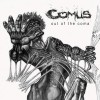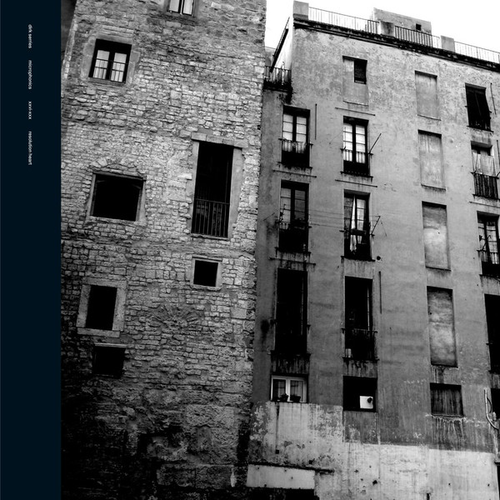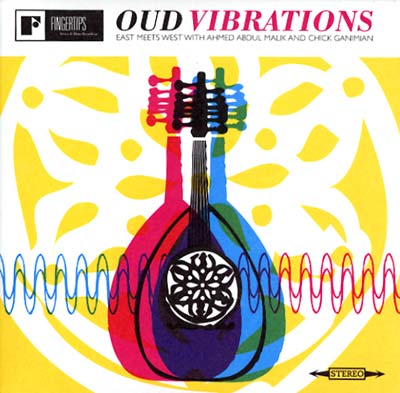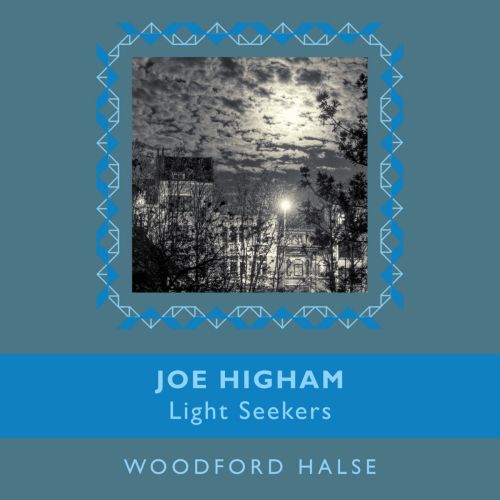Rise Above (12″)/Coptic Cat (CD)
 It was 1974 when Comus, after two truly blood-curdling albums (1971’s First Utterance and 1974’s To Keep From Crying), retreated to his woodland bower, lay down in a mossy hollow and went to sleep. Those recordings had been barely understood at the time, their power and strange attraction undeniable, yet somehow they remained too demonic, too priapic, to be embraced by those frightened of the twisted, leering face and the danse macabre melodies. The time of Comus had not yet come.
It was 1974 when Comus, after two truly blood-curdling albums (1971’s First Utterance and 1974’s To Keep From Crying), retreated to his woodland bower, lay down in a mossy hollow and went to sleep. Those recordings had been barely understood at the time, their power and strange attraction undeniable, yet somehow they remained too demonic, too priapic, to be embraced by those frightened of the twisted, leering face and the danse macabre melodies. The time of Comus had not yet come.
Before the decade was out, though, the landscape around the forest had changed beyond all recognition, whether through the angry thunderhead of Punk ripping apart Rock’s progressive trajectory, or the emergence of Chaos Magick leading away from the old gods and towards the deepest layers of the unconscious mind. Comus slept on in his secluded glade, through the horrors (and occasionally the triumphs) of the 1980s, on through the rise (and fall) of Dance culture and the eras of Major and Blair, and on into the 21st century.
As the first decade of the new millennium drew to a close, though, there came a twitching in the clearing. Sloughing off his years of sleep, Comus awoke once more, finding that during the intervening years a following had arisen and that acolytes had at last gathered to hear his song. Genres concerned with the dark, the pathological and the transgressive, ones that had not existed when Comus last stalked the forests – Industrial, Dark Metal – now revered those long-ago recordings as early, yet recognisable, kin. In March 2008, over thirty five years after the last performance, Comus once more appeared live, this time leading their deathly chant across the Melloboat festival, a celebratory rite aboard the Silja Symphony, a 204m luxury cruiser, and the largest ferry on the Baltic Sea.And now, four years later, Comus’ first new material in many years arrives in the form of an EP, Out of the Coma. Bearing a cover on which the familiar figure of Comus arises in a mass of and bone and sinew reminiscent of Frank Cotton’s sticky reanimation under the floorboards in Hellraiser, the EP is driven by a desire, described by Roger Wootton (the driving force behind Comus), as “[a feeling by the whole band] that we needed to show that we were not fossilised and that Comus was still a creative act.” It is admirable that the band are not content to exist merely as a museum piece, no matter how well-regarded, and starling that in tone, texture, twisted word and unsettling musical deed, the Comus of Out of the Coma sounds as forbidding as ever he did – age cannot wither him, nor custom stale the four tracks presented here.
The EP begins with the title track, inspired the band’s own return from the netherworld and thematically a close cousin to “The Prisoner” from First Utterance. Over brooding acoustic strings and quietly hysterical background hyperventilation, a tale of a living death in the depths of the abyss expressed through a soundless locked-in screaming unfolds – “Out of the coma, like being exhumed, out of the coma, rising up from the tomb” – the melody swelling and falling, one minute pastoral, the next shattered by the invasion of medical tubes and violent psychological rupture. Some beautiful woodwind twists and turns over the latter part of the track, but it’s utterly commendable that even years after the heyday of the genres of horror mentioned above – after the “Hamburger Ladies” and the “Mindphasers” – this still sounds as ghastly as ever. In a good way, of course.“The Sacrifice,” opening in a jangle of pure ringing notes and sweet girlish vocals, takes us straight to Summerisle to hear tell of a failing harvest put right through a blood sacrifice. Animals are fine, as they say, but their acceptability is limited, and next year’s harvest can only be ensured by something more human. Perhaps one of the most authentically ‘folk’ in the Comus canon, the track is filled with almost hummable chords and hysterical twittering flute. “The Return,” written by guitarist Glenn Goring, with arrangements by co-vocalist Bobbie Watson, is a beautiful and mournful lament for a drowned Ophelia, her lover pining by the cursed pool, awaiting the return of his lost lover. The song is nicely complementary to the material written by Wootton, a lighter tone to his darker shade, although no more cheerful in preoccupation. Watson’s singing is truly stunning in places and John Seagroatt’s woodwind offers a small glimpse of redemption by the pool of tears where no creatures reside.
The final track, however, is something slightly special, and worth the price of admission alone. During the summer of 1972 Comus cloistered themselves away in a dusty old village hall in Eynsford, Kent, near to where Wootton was then living, and there in the heat, perched upon battered sofa and old church chairs, gradually and painstakingly shaped their fragments and ideas into an epic two-section song-cycle entitled “The Malgaard Suite” – the story of a young maiden captured by a warlock ogre called Malgaard – and intended as the follow-up to First Utterance. Heartbreakingly, this material was never in the end recorded; the first section was performed live several times, yet, on presentation to the record company, was deemed too uncommercial. Instead it was suggested that a three-minute edit be issued as a single. The second section, completed just before the band broke up in September, was never even performed, let alone recorded. Sic transit Gloria Comus.
The band’s history took a different turn, and “The Malgaard Suite” remained a distant memory, striations of sound hanging forever over the soft, summer haze of forty years ago.
Yet, in a development now somewhat typical of the twisting path that is the story of Comus, a previously unknown bootleg of the first section of “The Malgaard Suite” has gradually surfaced, recorded on a tiny and tinny Sony cassette player at a university gig in 1972. Whilst the quality of the recording is, from the perspective of the modern digital age, somewhat primitive, Seagroatt has done a masterful job in the editing and re-mastering of the piece, the quality of the content far outweighing any deficiencies in the form. The Malgaard first section, arising ghostly after four decades, is a masterpiece of Comus’ singular brand of dark folk, an undulating 15-minute tapestry of voices and instrumentation. Had the piece been sympathetically recorded, it would stand proudly next to Henry Cow and Univers Zero. That we can only imagine that is sad, a testament to short-sightedness of the dull, grey executives who hadn’t the vision to see what was before them, but far rather that we can at last – at least – hear it as the band intended than not.Out of the Coma mixes the best of the band from a time long ago when a ludicrous Tory prime minister was gradually starting to lose the faith of the nation, to some superb new material from a time present when a ludicrous Tory prime minister is gradually starting to lose the faith of the nation. During Comus’ long, long sleep, maybe some things didn’t change quite as much as it seemed.
-David Solomons-



